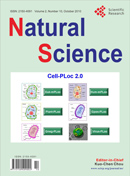 A mathematician will be performing subtraction on his CV now that he has had to retract a 2011 paper because his co-authors never agreed to submit it with him.
A mathematician will be performing subtraction on his CV now that he has had to retract a 2011 paper because his co-authors never agreed to submit it with him.
Kewen Zhao, of Qiongzhou University, Sanya, China, has lost a paper in Discrete Applied Mathematics, a journal for which Zhao claims to review. (Given the circumstances, perhaps he meant Indiscreet Applied Mathematics.)
According to the notice: Continue reading Chinese mathematician forced to retract paper after two co-authors say they had nothing to do with work







